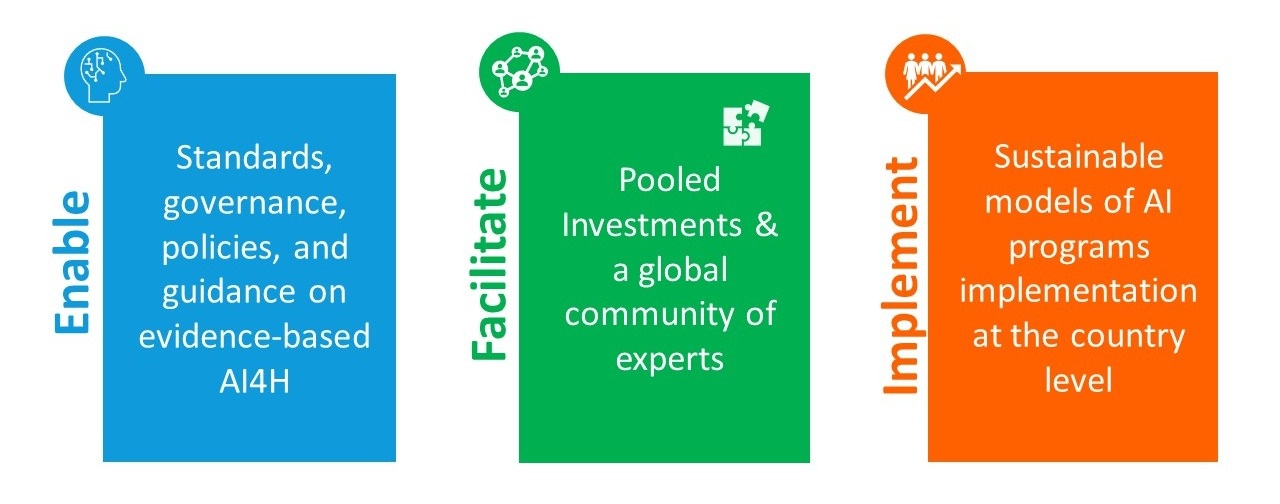Global Initiative on AI for Health
In 2018, WHO partnered with the International Telecommunication Union (ITU), setting the stage for the Focus Group on Artificial Intelligence for Health (FG-AI4H), a dynamic platform designed to provide answers to the pressing questions surrounding AI in healthcare.
With increasing global interest and participation in AI advancements, the FG-AI4H recognized the need for a long-term institutional structure. This partnership led to the formation of the Global Initiative on AI for Health (GI-AI4H). Launched in July 2023, under WHO, ITU, and the World Intellectual Property Organization (WIPO), the GI-AI4H stands as a resilient, long-term institutional structure, grounded in its mission to enable, facilitate, and implement AI in healthcare.

As the GI-AI4H took shape, WHO continued its commitment to shaping the future of healthcare through AI. This commitment is exemplified through a comprehensive set of guidance documents, strategic initiatives, and concerted global efforts, crafting a future where the integration of AI and healthcare is the norm.
The Global Initiative on AI for Health is a collaborative endeavour led by three specialized Agencies of the United Nations, namely, WHO, ITU, and WIPO, each bringing unique expertise and contributions to this initiative.
Strategy and guidance

Ethics and governance of artificial intelligence for health: Guidance on large multi-modal models
Artificial Intelligence (AI) refers to the capability of algorithms integrated into systems and tools to learn from data so that they can perform automated...

Generating Evidence for Artificial Intelligence Based Medical Devices: A Framework for Training Validation...
This first-of-its-kind publication from the WHO is a framework targeted at developers and researchers of AI-based software as a medical device, as well...

Global strategy on digital health 2020-2025
The purpose for a Global Strategy on Digital Health is to promote healthy lives and wellbeing for everyone, everywhere, at all ages. To deliver its potential,...

Ethics and governance of artificial intelligence for health: WHO guidance Executive summary
The WHO guidance on Ethics & Governance of Artificial Intelligence for Health is the product of eighteen months of deliberation amongst leading experts...
Online course
Publications and press release

Benefits and risks of using artificial intelligence for pharmaceutical development and delivery
WHO recognizes that artificial intelligence (AI) holds great promise for pharmaceutical development and delivery. However, AI also presents risks and...

This technical brief provides an overview of the landscape surrounding the use of artificial intelligence (AI) in sexual and reproductive health and rights...

Ageism in artificial intelligence for health
The WHO policy brief Ageism in artificial intelligence for health examines the use of artificial intelligence (AI) in medicine and public health for older...

